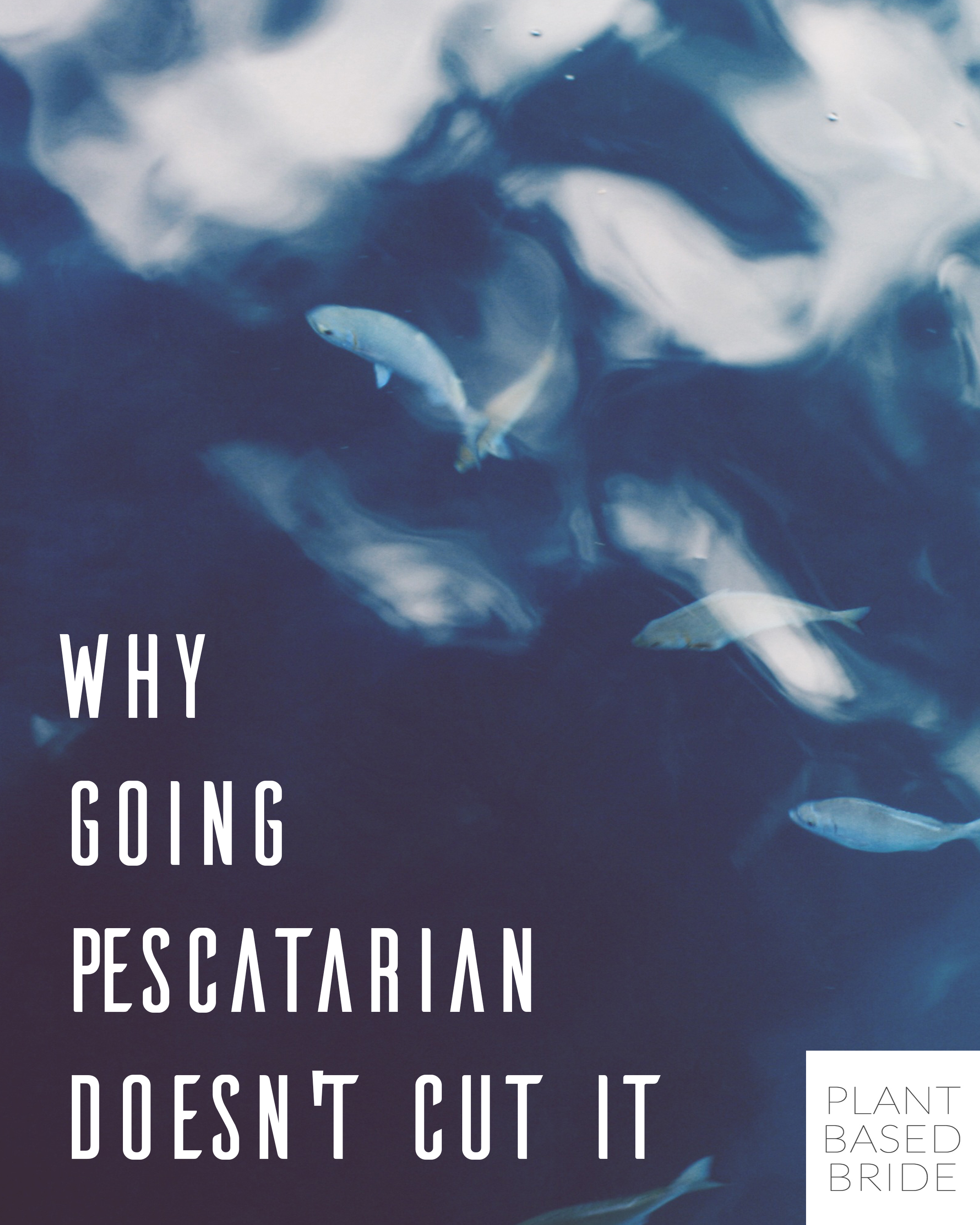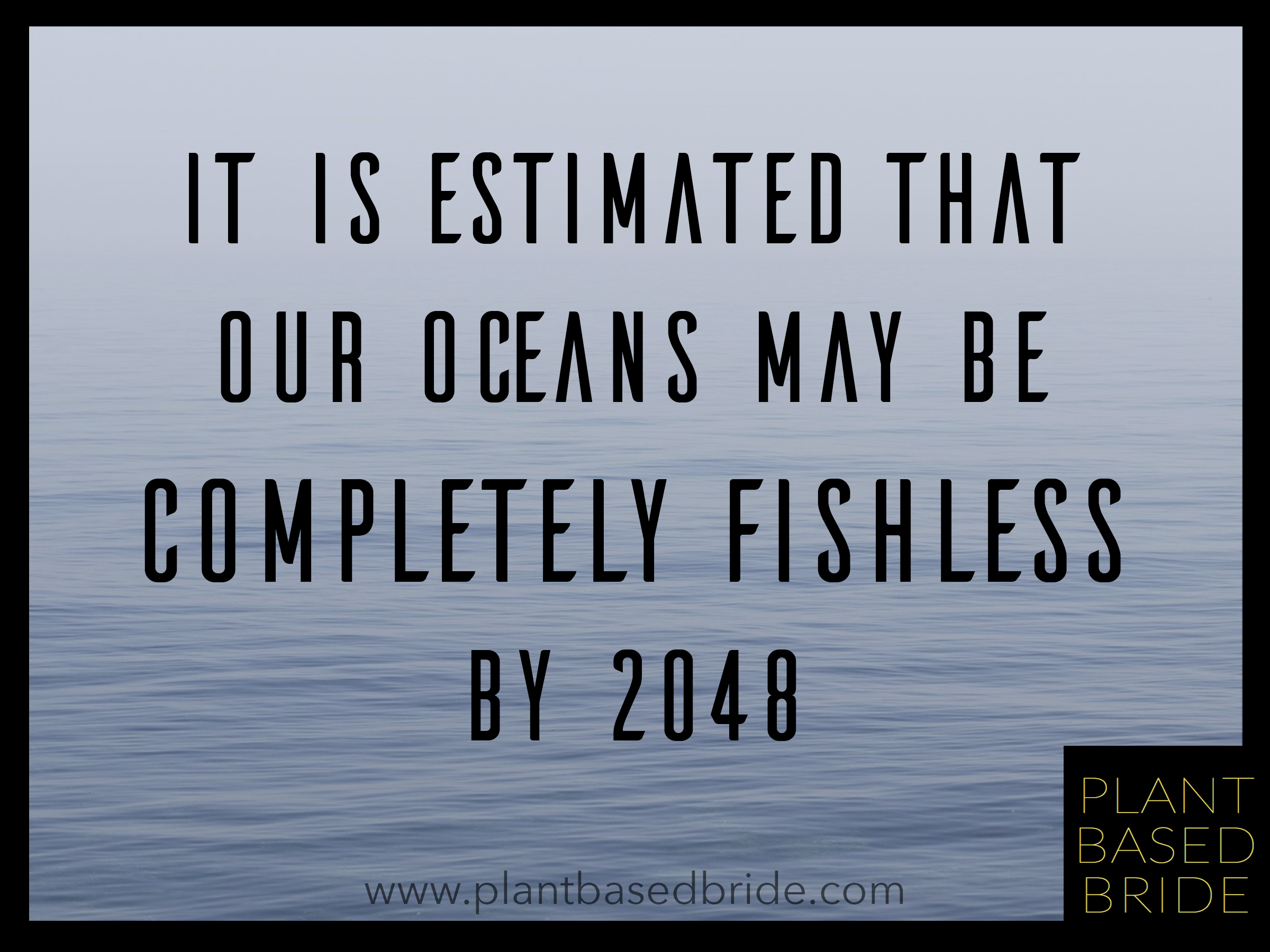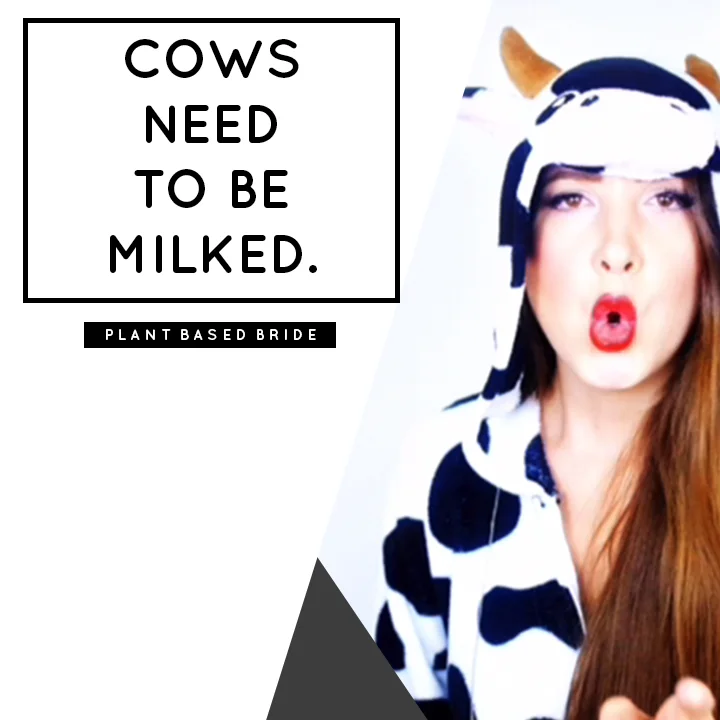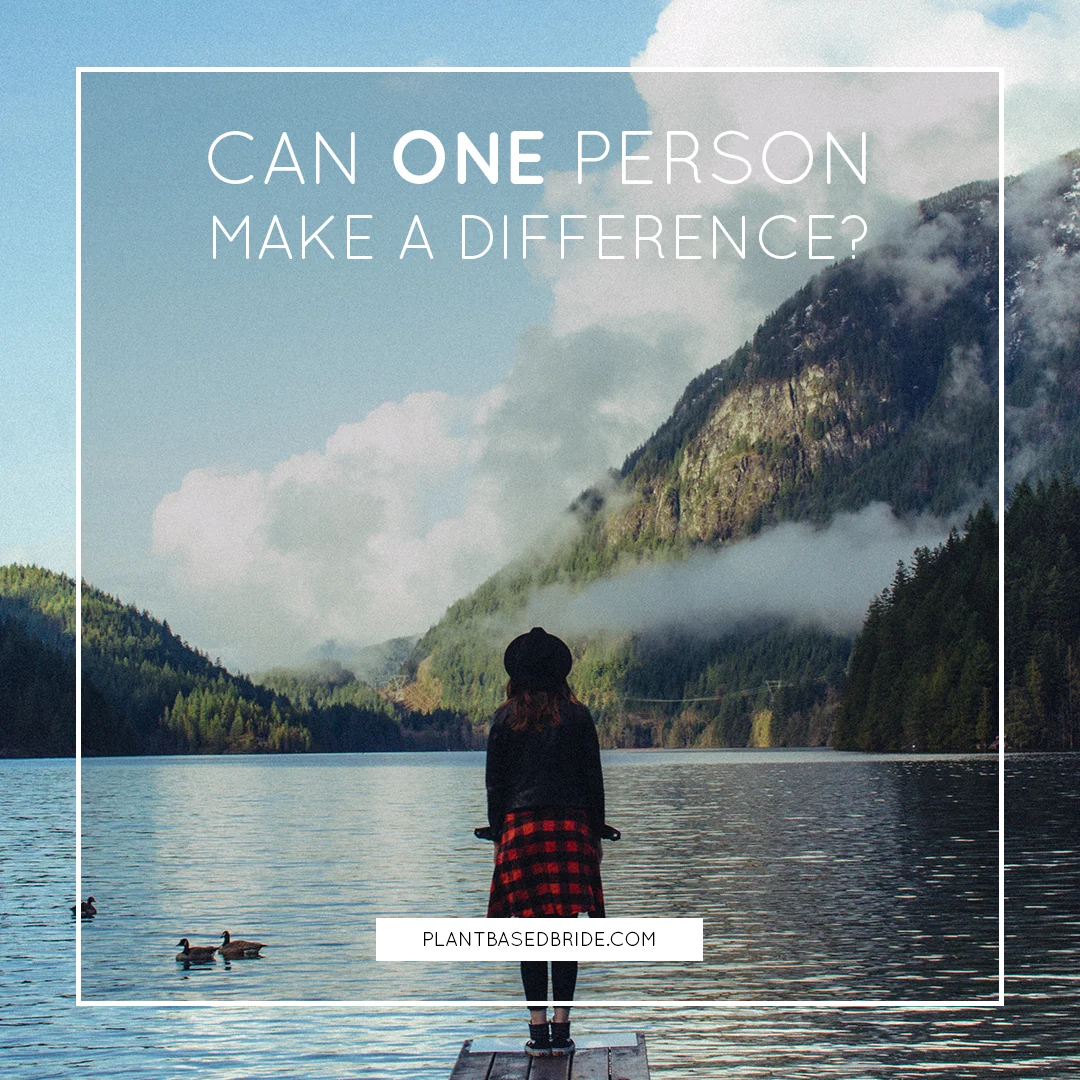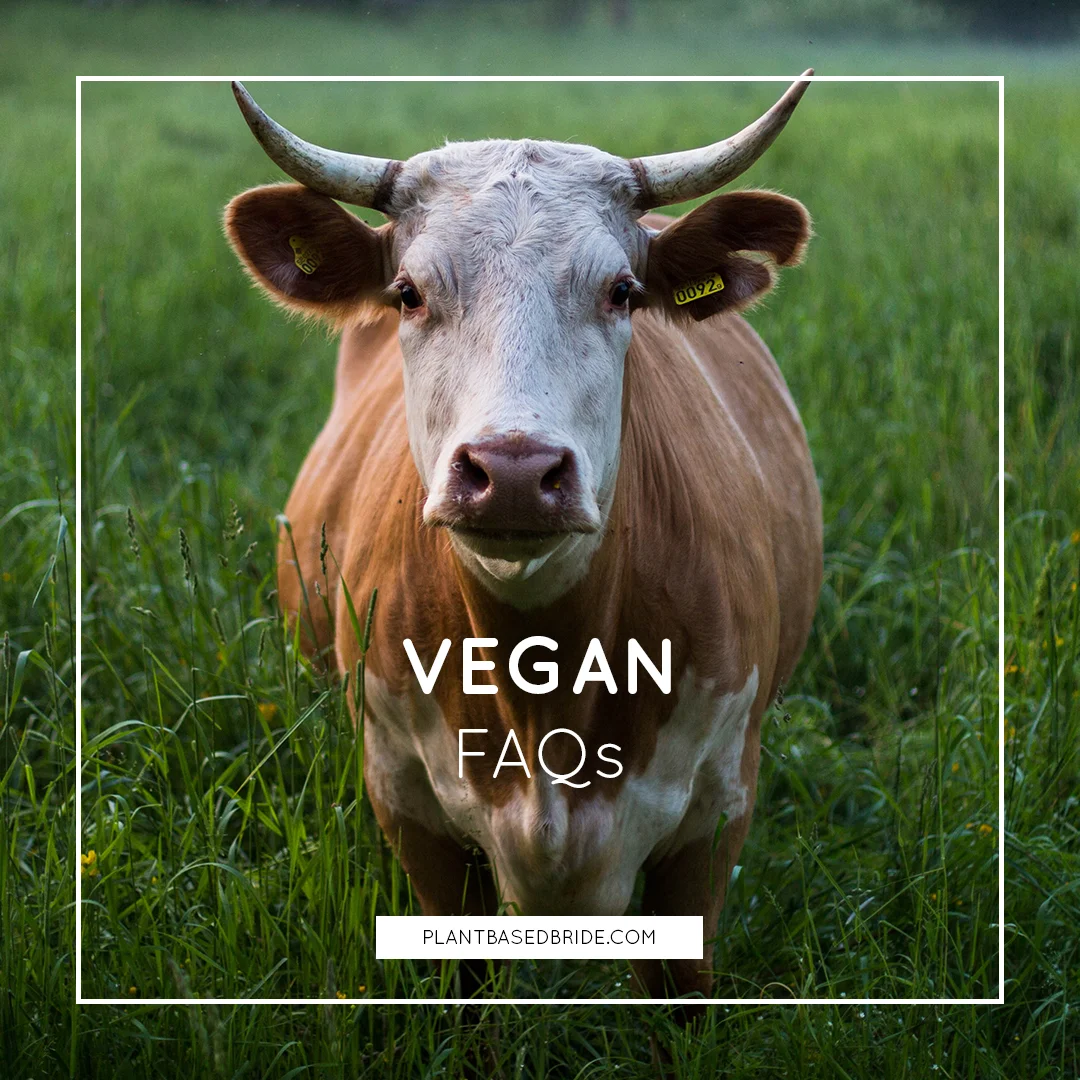Why Going Pescatarian Doesn't Cut It
Often when someone finds out that I'm a vegan they're quick to tell me about all about their diet. "I'm basically a vegetarian, but I NEED bacon!" or "I only eat white meat." or "I'm a vegetarian, but I eat fish." and the list goes on. I've always found this last one to be one of the oddest in the bunch. Really, it's the entire "pescatarian" trend that confuses me. Why distinguish between the flesh of sea and land animals? It seems to me that if you avoid the meat of cows and pigs and chickens and turkeys for health or ethical or environmental reasons, you would also avoid fish for the exact same reasons. It's clear that just like most people have trouble seeing the animals we raise for livestock in the same light as the animals we keep as pets, the majority view fish as living beings lower on the totem pole than mammals. For most people this ultimately means that fish are just that much more different than us and are therefore less deserving of life. Most of you would NEVER eat a dolphin. But tuna? Why not? I think a big part of this pervasive belief is that people don't fully understand the impact commercial fishing has on our planet and health. Lucky for you, I'm here to fill you in!
Modern day fishing is nothing like the fishing of old. Today, if you want to eat tuna salad for every meal, you can. The big plus? You don't have to catch the fish yourself! Eating fish has become incredibly convenient. But at what cost? Last year more than 28 billion animals were pulled out of the oceans. Twenty eight billion. Many of those animals were not even the targeted species, but a collection of all other living creatures in the area, termed "by catch".
Fishing is, in fact, the primary cause of loss of species in our time. Animals are being removed from our oceans faster than they can possibly reproduce. According to the National Oceanic and Atmospheric Administration, there are approximately 2,215 species of animal listed as endangered or threatened under the Endangered Species Act. This list includes many marine animals such as:
- two species of dolphin;
- thirteen species of whale, including sperm, blue, killer, and beluga;
- six varieties of turtle;
- six species of seal;
- and fifty seven species of fish including trout, sturgeon, hammerhead shark, and salmon.
Fishing not only causes serial depletion (depleting species A, moving on to species B, depleting species B, moving on to species C, depleting species C, and so on) but destroys the aquatic environment and kills many other species as by-kill. The oceans are nearing complete collapse with many large fish species nearing extinction, with 90% of our oceans' large fish species having already gone extinct in the past 50 years. It is estimated that our oceans may be completely fishless by 2048. That's right, our oceans may be empty of life in a mere 33 years. I want my grandchildren to experience swimming with the fishes, don't you?
So how come fishing is causing so many non-targeted animals to be killed as by-kill? To understand this, you need to understand how commercial fishing is done.
Long-lines are lines as long as 75 miles covered in hundreds of thousands of baited hooks. While some animals drown or bleed to death in the water, the majority remain alive and struggling until they are reeld into the boat to their slaughter. Each year billions of animals including sharks, sea turtles, birds, and dolphins are injured or killed by long-lines.
Gill Nets ("walls of death") are huge nets ranging in size from 200 feet to more than a mile long which are weighted at the bottom and floated at the top, then left unmonitored for days at a time. The sharp mesh is difficult to see and all but the smallest fish get stuck. If they try to back out the mesh catches them by the gills or fins causing them to suffocate, and if they struggle too violently they will often bleed to death. Any fish who remain alive once on deck are ripped out of the net by hand and suffocate or cut open while still living. Deep sea fish often suffer from decompression, meaning that the change in pressure is so extreme that their stomachs are forced out of their mouths.
Purse Seines are under fire for sometimes catching dolphins in the nets, but are usually intended to catch tuna. Fishers track pods of dolphins, commonly found swimming with tuna, and drop a net to surround the school. The edges of the net are slowly cinched together trapping hundreds of tuna. These fish are almost all conscious when their gills are slit and they are disemboweled.
Bottom trawlers are pretty much what they sound like. These large bag-like nets are dragged across the ocean floor, picking up everything in their path. And by everything, I mean every fish, mammal, stone, and plant. Metal plates on each end weigh down the net and stir up sediment to force fish into it. This method of fishing turns the ocean floor into a clean slate, and not in a good way. Bottom trawling is extremely similar to clear-cutting a forest. These nets can hold hundreds of tons of animals at one time, sometimes crushing them so strongly between each other and the net that their eyes pop out. Fish are dragged along the ocean floor with rocks, coral, and debris for hours, grinding their scales off. Any fish left alive when they are brought to the surface will experience the same agonizing decompression I described earlier.
As you can see, not only is commercial fishing bad for the species we are hoping to catch (those survivors who don't have their gills cut while still alive to bleed to death are put on ice to slowly freeze or suffocate, a process which takes a very long time for cold-blooded animals like fish. It is estimated that it takes up to 15 minutes of intense pain before most fish lose consciousness.) but also for the nearly 1,000 marine mammals who are caught daily as by-catch and thrown back into the water to be killed by swarming birds or bleed to death, if they hadn't already died due to the torture they were subjected to.
Fish and Your Health
As if these environmental reasons weren't enough to discourage anyone from eating fish, it also has numerous ill effects on your health. It is advised that pregnant women and children completely avoid those species of fish that have been found to contain high levels of mercury due to their negative impact on developing nervous systems as well as their accelerating effect on arthrosclerosis (a hardening of the arteries which leads to heart attacks and strokes). Fish also contain PCBs and dioxins which have been linked to cancer and reproductive problems and are a major cause of food-borne illness.
Fish is made up of as much as 60% fat, which contributes to obesity and diabetes. Fish also contains cholesterol, at an even higher proportion of cholesterol per calorie than red meat. Fish contains substantial amounts of animal protein, which as we now know, contributes to bone loss and osteoporosis. In fact, the Inuits (widely known to consume the highest percentage of fish in their diet in the world) have the highest rates of osteoporosis on the planet. It has been found that both male and female Inuits have anywhere from 10-15% higher bone loss than those of Caucasian descent in the United States of the same age. This is despite a consumption of up to 2,500 mg of calcium a day (a majority of which comes from fish bones).
You might also like: Building Strong Bones With Plants and Should You Worry About Your Body's pH?
What about fish oil supplements?
Fish oil supplements cause LDL (the bad cholesterol) to rise in those that take it, even in those supplements which have had the cholesterol removed through purification. It was found in one study that fish oil treatment did not promote favourable changes in atherosclerotic coronary arteries' diameters, even after 2 years. Fish oil has another less than desirable effect: it supresses our immune system. As you know, a suppressed immune system is less able to fight of infections and diseases, including cancer. Fish oil has also been found to cause severe bleeding.
All in all, it's clear to see that not only is choosing to eat fish a choice to diminish our health but a choice to corroborate in the torture and slaughter of billions of intelligent, feeling, animals every single year. Going pescatarian isn't the path towards health, it's the path towards death; for us and our planet's aquatic life. I don't eat fish because I want to live a long, healthy life in which visits to the ocean include marine life sightings, rather than swimming in a glorified pool, devoid of living things. What does eating fish do for you that is so great it outweighs the harm? I think you'll find with a bit of reflection that the answer is: "Nothing."
Until next time,
What are your thoughts on the fishing industry? Join the conversation below and on social media! (Use the hashtag #plantbasedbride so I can find your posts and tag me, @elizabethturn, on instagram and twitter!)
Don't forget to subscribe to the Plant Based Bride newsletter to be notified when new posts are published, get news & updates, and receive a FREE goal setting printable to go along with my 5 Steps for Setting Great Goals blog post!
Further Reading & Sources
http://www.earthsave.org/news/03summer/fish.htm
http://www.consumerreports.org/cro/2012/08/the-benefits-and-risks-of-eating-fish/index.htm
http://www.peta.org/issues/animals-used-for-food/factory-farming/fish/commercial-fishing/

